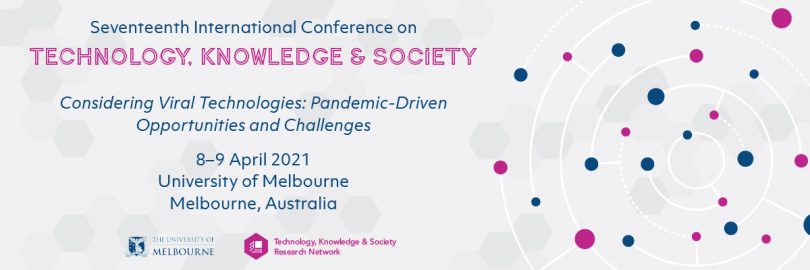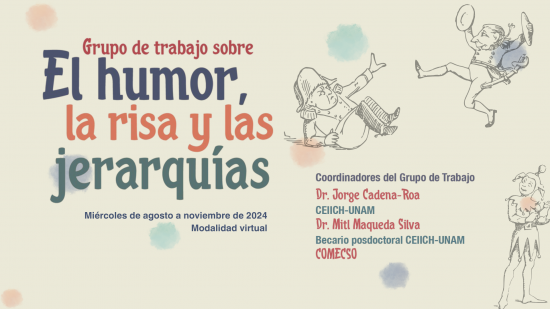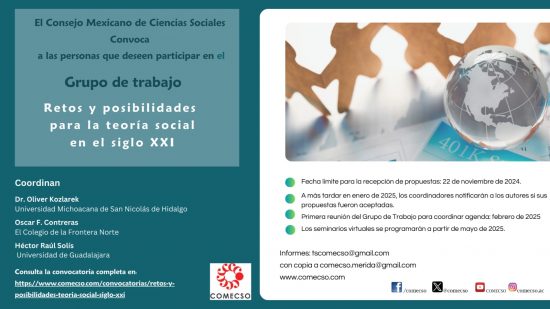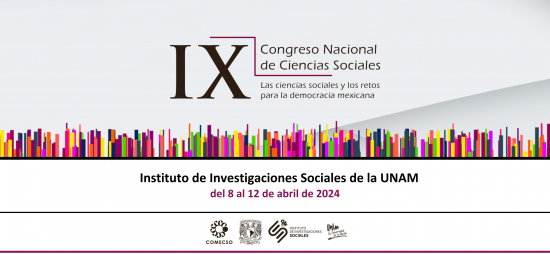Technology, Knowledge, and Society
Seventeenth International Conference on Technology, Knowledge, and Society
University of Melbourne – Parkville Campus
Melbourne, Australia
8–9 April 2021
Building Resilient Research Communities
To support the range of options, and flexibility needed in our current climate, we will offer a blended conference experience. You do not need to commit either to a place-based or virtual presentation at the time of submission. You can present both ways, or change your mode of the presentation if your preferences change. The choice to participate virtually could also be a moral decision – for the planet, for security, or when the financial burden of travel is too great. We seek to foster spaces that align with principles of social justice and community development — particularly in difficult times.
We also want to be ready for the possibility of place-based postponement due to COVID-19. If we are forced to postpone, the online engagement will still go ahead, and your registration will allow you to join the conference in person in a later year.
This way we build for our Research Network Members flexible, and at the same time resilient, spaces for communication, engagement, and participation.
The Seventeenth International Conference on Technology, Knowledge, and Society is brought together by a shared interest in the complex and subtle relationships between technology, knowledge and society. We seek to build an epistemic community where we can make linkages across disciplinary, geographic, and cultural boundaries. As a Research Network we are defined by our scope and concerns and motivated to build strategies for action framed by our shared themes and tensions.
The Seventeenth International Conference on Technology, Knowledge, and Society features research addressing the following annual themes and special focus:
Themes & Tensions
Theme 1: Histories of Technology
How do societies produce, become determined, and are seen as technologies themselves?
Living Tensions:
- Long Histories – undersigning continuity and change
- Humans and Machines – interfaces, mediation, and usability
- Public or Private – considering social infrastructure
- Ethics, Human Values and Technology – inputs or outputs
- Open or Closed Systems – framing social architectures
Theme 2: Knowledge Makers
What are the epistemological foundations that shape technological epochs?
Living Tensions:
- Digital Meanings – multimodal communications and multiliteracies
- Artificial Intelligence, Intelligent Systems, Intelligent Agents – the human and the machine
- Data and Metadata – boundaries, functions and ownership of knowledge
- Ubiquitous Learning – nurturing personal and common knowledge
- Digital Divides – access, participation, capacity development
Theme 3: Social Realities
What is the role of technologies in community formation, maintenance, and change?
Living Tensions
- Diversity and Meanings: cultural sustainability and sustainable heritage development
- Reconfiguring the economic equation: contesting “financial years” and “instant gratification”
- The Global Village – a place inclusion or privilege
- Framing Consensus – who do we include in our social considerations
- The Virtual and the Real – the speculative capacity of social imaginaries
- Sustainable Technology – media archeology as ecological roadmaps
- Privacy and Security – navigating legal and regulatory landscapes
2021 Special Focus: Considering Viral Technologies: Pandemic-Driven Opportunities and Challenges
Since the beginning of the current crisis, lockdowns, quarantines, and stay-at-home orders have swept across our everyday lives – and at an incredible speed. To keep our societies functional during this time of global pandemic, we have turned increasingly to digital communication tools and networks. Digital technologies protect us from the social exposure to the virus, with tools that facilitate contactless delivery of essential goods, virtual meetings, and cloud services that enable work from home and e-learning delivery. In connecting with business, schools, or government. automated interactions have in many cases replaced even virtual human contact. Digital technologies now know more about us and the virus – from contact tracing that monitors vectors of viral transmission, to big data analytics that track viral spread. Here are some of the key dimensions of these changes, and focal points for this research network:
Technology: Each response has been a viral technological “patch.” Existing tools are used and implemented not only in conventional ways, but also in new and innovative ways. The effect has been an acceleration of key technological trends in areas such as digital payments, tele-health, and online learning, to name a few. We have also seen the legitimization of digital infrastructures to monitor and track populations – from biometrics, to facial recognition, to shared electronic health records.
Knowledge: In the social meaning-making space, “data” has become viral. In debates about the nature of the virus and strategies for social response, we see contestation and doubt around the scientific evidence, differing cultural approaches to community safety, and uncertainties at the interface of culture with national regulatory approaches – all based on differing interpretive frames of knowledge.
Society: We have quickly developed a new shared grammar of “going viral.” This revolves around the geo-spatial nature of the viral flow. On one hand, this addresses the divide between place-based versus online. On the other hand, this raises questions of sociality itself – in-person social distancing versus digital interactions.
In a not yet distant past, going viral was a measure of success in the digital world. This mapped a kind of sociality in digital environments. Now we are in the middle of a different kind of viral technological moment. What might we have “let out of the bag” at these pivot points of Technology, Knowledge, and Society? And looking towards a future supposedly defined by the Fourth Industrial Revolution dominated by technologies of intelligence, what kind world will be left?
Proposal & Registration Dates
Proposal Deadlines
| Advance Proposal Deadline | 8 June 2020 |
| Early Proposal Deadline | 8 September 2020 |
| Regular Proposal Deadline | 8 January 2021 |
| Late Proposal Deadline | 8 March 2021 |
Registration Deadlines
| Advance Registration Deadline | 8 July 2020 |
| Early Registration Deadline | 8 October 2020 |
| Regular Registration Deadline | 8 March 2021 |
| Late Registration Deadline | 8 April 2021 |
Submit a proposal
Te puede interesar

Publicaciones del COMECSO
comecso - Dic 04, 2024Este espacio reúne la gran mayoría de la producción editorial de nuestra asociación. A lo largo de casi cinco décadas,…
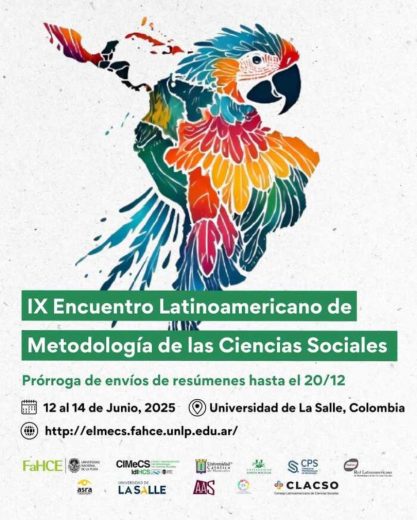
IX Encuentro Latinoamericano de Metodología de las Ciencias Sociales
Laura Gutiérrez - Dic 11, 2024IX Encuentro Latinoamericano de Metodología de las Ciencias Sociales Indisciplinar las ciencias sociales. Transformaciones y resistencias en las fronteras metodológicas…
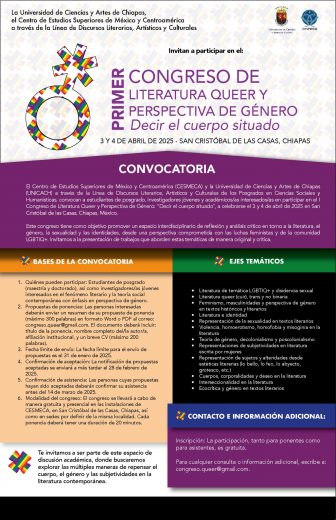
Primer Congreso de Literatura Queer y Perspectivas de Género: “Decir el cuerpo situado”
Laura Gutiérrez - Dic 11, 2024La Universidad de Ciencias y Artes de Chiapas, el Centro de Estudios Superiores de México y Centroamérica a través de…
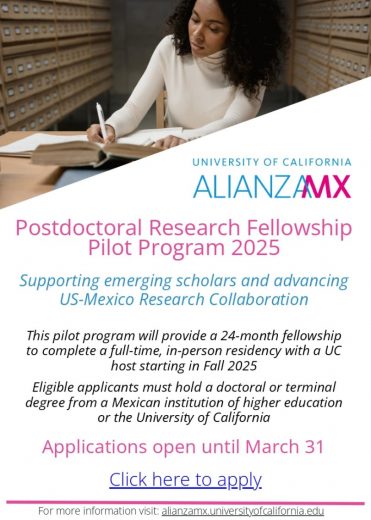
Postdoctoral Research Fellowships
Laura Gutiérrez - Dic 11, 2024University of California Alianza MX Postdoctoral Research Fellowships 2025 Pilot Program Deadline: March 31, 2025 The University of California Alianza…
